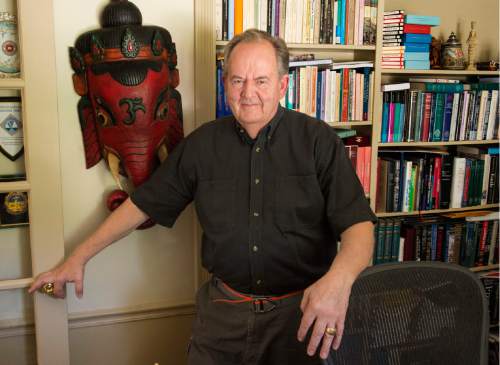This is an archived article that was published on sltrib.com in 2015, and information in the article may be outdated. It is provided only for personal research purposes and may not be reprinted.
A year after Tunisia adopted a new constitution that mandates an independent judiciary, Utahn Markus Zimmer is helping lay the groundwork for changes in the nation's justice system.
In January, a team led by Zimmer, former clerk of the U.S. District Court in Utah, spent two weeks conducting interviews and gathering data as part of an assessment of court operations and needs in the north African nation. The team's report is slated to be presented to Tunisia's Ministry of Justice in September.
The assessment will provide useful information but implementing changes could be difficult because of a lack of resources, Zimmer said. Severe budget constraints were made worse by two terrorist attacks this year aimed at the country's tourism industry, a primary source of government revenue, he said.
"The outlook is very poor," Zimmer said. "The courts are already terribly underfunded."
On March 18, gunmen killed at least 20 people at the Bardo Museum in the capital city of Tunis. And on June 26, a sole gunman killed 38 tourists on the beach and in a hotel in the coastal city of Sousse.
After those attacks, "tourism just tanked," said Zimmer, who stressed that he never felt at risk during his time in Tunisia, a small country that borders the Mediterranean Sea and lies between Algeria and Libya.
Tunisia's new constitution has its roots in a civil protest that resulted in the resignation of its president in early 2011 and helped trigger a wave of protests in other countries that became known as the Arab Spring. The Tunisian revolution led to the formation of a transitional government that introduced democratic reforms and included provisions in the constitution for an independent judiciary.
The Ministry of Justice, which is part of the executive branch of government, now manages the courts, according to Zimmer. He said the United States had been in a similar position for years, with the Department of Justice having administrative authority over the courts.
Then, in the 1930s, Congress created the Administrative Office of the United States Courts, which handles administrative matters for the federal courts, Zimmer said. He believes that Tunisia can make the same transition.
Since 1992, Zimmer has lent his expertise to numerous nations through programs sponsored by the U.S. government, the United Nations and legal organizations that promote court reform and the rule of law worldwide. The Sandy resident, who retired from the federal court in Salt Lake City in 2006, has traveled to 30 nations to help set up independent justice systems.
He is the founding president of the International Association for Court Administration and the executive editor of the International Journal of Court Administration.
The Tunisian assessment is sponsored by two Virginia-based organizations, the National Center for State Courts and the International Association for Court Administration, and the International Legal Assistance Consortium in Sweden.
Pointing out that Tunisia's new constitution has been hailed in the international community as a model for the area, Zimmer said, "The government has a difficult task on its hands and we should do everything we can to help that little country."
Twitter: @PamelaMansonSLC





